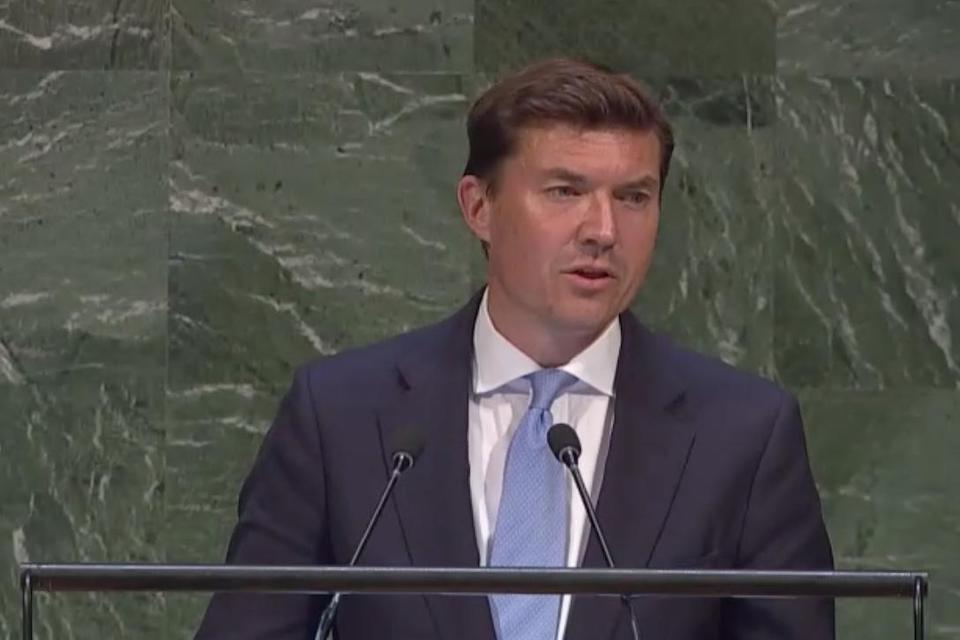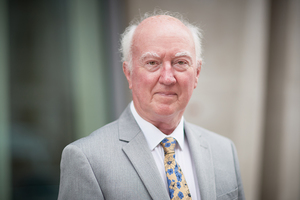Ingenious innovations to help transform UK farming
New technologies are set to help UK farmers cut down on pollution, minimise waste and produce more food.

- Farmers set to benefit from innovations that boost food production and cut down on waste
- funding will support projects including using electricity instead of herbicides to tackle destructive weeds and ground-penetrating radars that monitor potato crops
- projects supported by £22 million of government investment through the modern Industrial Strategy
New technologies are set to help UK farmers cut down on pollution, minimise waste and produce more food thanks to a £22 million government investment.
Science Minister Chris Skidmore today (28 June 2019) announced the first 31 projects to benefit from the government’s dedicated Transforming Food Production Challenge, a £90 million Industrial Strategy fund to help businesses, researchers and industry to transform farming and meet the needs of a growing population.
This investment in the latest technological developments is a key part of the government’s modern Industrial Strategy, and commitment to boost R&D spending to 2.4% of GDP by 2027.
It will also contribute towards providing greener, cleaner processes for the agricultural sector, helping towards the government’s commitment to a target of net zero greenhouse gas emissions by 2050.
Projects will benefit from a share of £22.4 million to develop their innovative projects, with industry partners contributing a further £8.8 million. They include:
- Rootwave, in Warwickshire, who will use a £690,000 grant to use electricity instead of chemicals to kill weeds via the roots avoiding damage to crops
- Tuberscan, in Lincolnshire, who will use £391,000 to develop ground penetrating radar, underground scans and AI to monitor potato crops and identify when they are ready to harvest. This technology could increase the usable crop by an estimated 5%-10% and reduce food waste with minimal extra cost
- a project in Middlesex, who will use a £233,000 grant in its project to help cows graze without farmer supervision by placing sensors on farm gates that communicate with GPS trackers on cows to open and close gates allowing cattle to graze freely
- aiScope, a project based in Sheffield, who will use a £1 million grant to apply AI and analysis to tackle the common cereal weed, Blackgrass, potentially saving farmers £580 million a year.
Science Minister Chris Skidmore said:
The UK is a global leader in technological innovation, as well as being the first major economy to introduce plans for a legally binding target to reach net zero emissions and end the UK’s contribution to global warming entirely by 2050.
The projects announced today will ensure we lead the way in supporting our vital farming industry, delivering high quality food for consumers while reducing the wider environmental impact.
This is a key part of our modern Industrial Strategy, investing in ground-breaking projects, creating highly skilled jobs and providing a cleaner, greener future for generations to come.
Farming Minister Robert Goodwill said:
Agri-tech can help us address the biggest challenges facing the agriculture industry, such as eradicating crop pests and diseases for arable farmers without harming the wider environment.
In 2018 we saw the total value of agri-tech investment worldwide skyrocket to $17 billion – an increase of 40% on the previous year.
Today’s funding will enable more investment in new technology, helping lead to scientific breakthroughs that could transform the sustainability of global food supply chains.
UK Research and Innovation Chief Executive, Professor Sir Mark Walport, said:
It is predicted that 60% more food will be needed worldwide by 2050 to feed the increasing global population. To do this we need to produce food in more resilient, sustainable and efficient ways. This means reducing emissions and pollution, minimising waste and improving our soil.
The projects announced today will help to address this challenge, delivering benefits for consumers through innovation in the food economy.
Full list of successful projects:
Transforming Food Production Challenge is part of the Government’s Industrial Strategy Challenge Fund which aims to strengthen UK science and business innovation to take on the biggest challenges that society and industry face today.
The Challenge Fund aims to bring together our world-leading research base with Britain’s best businesses to transform how we live, work and travel.
By investing in the very best research, development and innovation, it will tackle the major industrial and societal challenges we face today and put the UK in the best position to take advantage of future market opportunities.
Notes to editors
Full list of successful projects:
Agri Tech projects
(PDF, 141KB, 12 pages)
Transforming Food Production Challenge is part of the Government’s
Industrial Strategy Challenge Fund which aims to strengthen UK science
and business innovation to take on the biggest challenges that society
and industry face today.
The Challenge Fund aims to bring together our world-leading research
base with Britain’s best businesses to transform how we live, work and
travel.
By investing in the very best research, development and innovation,
it will tackle the major industrial and societal challenges we face
today and put the UK in the best position to take advantage of future
market opportunities.


